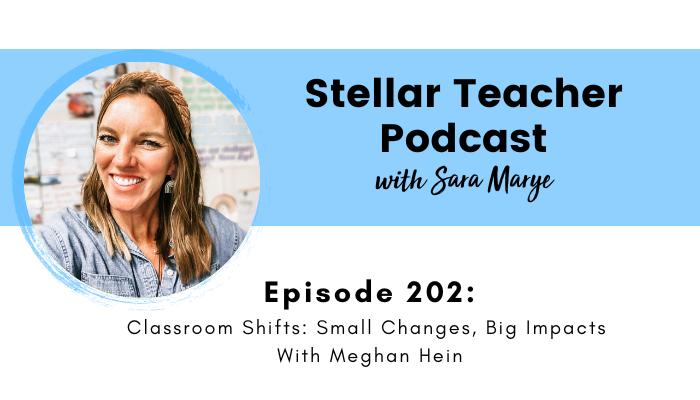
Click play below to hear about different science of reading practices:
When tackling a new approach to your instruction, it takes a lot of research, dedication, and implementation to find success with your students. After hearing about the science of reading, my guest, Meghan Hein, dove head first into learning all she could about it and has since made small changes to her literacy block to align with its practices just this past school year. So, in this episode, Meghan’s here to talk about her work with the science of reading practices, how she worked to align them with her curriculum, and the impacts they’ve had.
Instead of doing a major overhaul of her instruction, Meghan has made small changes over time that have made the biggest impact on student learning. She details the science of reading practices she’s put in place, such as incorporating morphology, decodable texts, and rearranging her small group instruction to benefit her students. Meghan is also passionate about using a knowledge-building approach and explains how shifting the priority of how you’re teaching students skills directly impacts their learning.
Although the science of reading isn’t new, learning new science of reading practices and aligning your instruction with it might be. Meghan is passionate and loves to share her ideas and the knowledge she’s learned with other teachers in the classroom. One thing she’s learned is that the small classroom shifts you make eventually make the biggest impact on student learning and your own enjoyment in the profession.
Meet Meghan
Meghan Hein
Meghan is a second-grade dual language teacher in San Diego who has served in various roles throughout her 20-year career, such as math coach and intervention specialist, but she always finds herself most content learning alongside her students in the classroom. She loves sharing about her learning journey as a classroom teacher on Instagram, where she still fosters her passion for championing her fellow practitioners.
In this episode on the science of reading practices, we discuss:
- How Meghan works on aligning her classroom to the science of reading
- What small shifts Meghan did to her instruction that impacted student learning
- Ways to utilize literacy lessons to cover science and social studies topics using a knowledge build approach
- Why the planning can be intensive, but the benefits she’s seen in her classroom
- Meghan’s advice and encouragement to those teachers wanting to make the shift
Resources:
- Sign up for my Private Podcast: Confident Writer Systems Series
- Check out the Stellar Literacy Collective Membership
- Check out my Free Literacy Workshop, The Time Crunch Cure: Create a Literacy Block That Fits it All In and Achieves More
- If you’re enjoying this podcast, please leave a review on Apple Podcasts!
Related episodes and blog posts:
- Episode 196, Understanding the Science of Reading in Upper Elementary
- Episode 187, From Balanced Literacy to Structured Literacy With Anna Geiger
- Episode 136, What Does the Science of Reading Look Like in Upper Elementary?
- Episode 88, Science of Reading Q&A
- Episode 85, What is the Science of Reading & Why is it Important?
- The Science of Reading: Building a Foundation for Successful Readers
Connect with me:
- Join my newsletter
- Shop my TPT store here
- Instagram: @thestellarteachercompany
- Facebook: The Stellar Teacher Company
More About Stellar Teacher Podcast:
Welcome to the Stellar Teacher Podcast! We believe teaching literacy is a skill. It takes a lot of time, practice, and effort to be good at it. This podcast will show you how to level up your literacy instruction and make a massive impact on your students, all while having a little fun!
Your host, Sara Marye, is a literacy specialist passionate about helping elementary teachers around the world pass on their love of reading to their students. She has over a decade of experience working as a classroom teacher and school administrator. Sara has made it her mission to create high-quality, no-fluff resources and lesson ideas that are both meaningful and engaging for young readers.
Each week, Sara and her guests will share their knowledge, tips, and tricks so that you can feel confident in your ability to transform your students into life-long readers.
Tune in on your favorite podcast platform: Apple, Google, Amazon, Spotify, Castbox, and more! If you’re loving this podcast, please rate, review, and follow!
Podcast (stellar-teacher-podcast): Play in new window | Download
Sara
I am so excited for today’s episode. Joining me is my dear friend, Meghan Hein, who is the teacher behind the Instagram account Always More to Learn.
Sara
Now Meghan is currently a second grade classroom teacher who has been working on aligning her instruction with the science of reading. I think Meghan is incredibly encouraging and inspiring. And through our conversation, you’ll discover that she is really passionate about helping teachers make small shifts towards practices that align with the science of reading.
Sara
And I think this is really impressive, because not that long ago, Meghan just discovered what the science of reading was. But through our conversation today, she shares some really small shifts that she has made over just even this past year. And she talks about the significant impacts that these changes have had on her students learning and her own enjoyment of the profession. And she really wants teachers to realize that we don’t have to completely overhaul our literacy blocks to make them more effective.
Sara
I was really excited when Meghan agreed to come on the podcast because I love sharing the voices of teachers who are still in the classroom, putting evidence based strategies into practice. So I hope you find our conversation today both encouraging and inspiring. Let’s go ahead and welcome Meghan to the show.
Sara
Hi, Meghan, welcome to the show. I am so excited to have you on as a guest today.
Meghan
My gosh, this is like a dream come true. Thank you so much for having me.
Sara
Absolutely. So I am so excited for our conversation today. But I just have to tell you, I love I love your Instagram account, first of all and everything you share, but I love your Instagram name, the Always More to Learn. I’m like, I want that on a t shirt, or a mug or a bumper sticker or something. I feel like it’s just a good sort of reminder for life. It’s like, yeah, there’s always more that we can learn.
Meghan
Thank you. I started it back when I was getting ready to go back to the classroom a few years ago. And it just felt like the perfect thing. Because at that moment in time, I did have a lot to learn. And it just has become more and more fitting in my journey. So thank you, I know I should I should get my own t shirt. I feel like that is a coin phrase that I use all the time.
Sara
And well, it’s gonna say whenever you get T shirts, let me know because I’ll for sure one by one. So I like I said, I have loved following your journey. I feel like we connected on Instagram maybe a little over a year ago. And I love how transparent you are just with your journey about learning more about structured literacy and the science of reading.
Sara
And before we really jump in and talk about some of the things that you’ve learned. Can you talk a little bit about just your teaching history? And really, what did your literacy instruction look like before you started learning about the science of reading?
Meghan
Absolutely. So I can’t believe this is year 20 for me in education, which is so crazy to say. I started off in a second grade classroom and just fell in love with the profession there. And I think it was about seven or eight years into teaching that I had the opportunity to do a position where it was almost like a district coaching position with the rollout of Common Core math, actually, and served in that position for a few years and learned just how much I love supporting teachers and different roles and kind of coming alongside them and helping them plan and things like that.
Meghan
And then went from there to one site and worked as a site reading interventionist, and served in that role for about five years really just like being very narrow focus on our school wide data, trying to get better outcomes for students in the area of reading. And then kind of fortuitously right before the pandemic, there was an opportunity to go back to the classroom funding was low for us.
Meghan
And so my position was kind of shutting down and I had had this like aching need to get back into the classroom. Again, I almost felt like I think after seven or eight years feeling like the things I was asking teachers to do, I don’t know just like that disconnect of I want to get in there and do it myself and see how it works.
Meghan
So it was the perfect time to come back in. And also the craziest time because it was right in the heart of you know, going back and forth between home learning and person learning. But that’s where I’ve been for the last few years and just loving the journey of learning alongside my students.
Sara
I love it and I feel I can connect to so much of that. I started off as a second grade teacher and while I eventually moved up to the upper grades like that is such a fun, magical age. Like there’s something about a second grade that I just it’s it’s a fun age.
Sara
And I remember I left the classroom too I feel like I was in and out of the classroom for just a all at different points in my career, and it is one of those things when you’re in, like a coaching role or a leadership role, and you’re asking teachers to do things or coaching them, you get to the point where like, wait a minute, I’ve learned so much as like a coach that it’s like, I want to get back in the classroom and do this, myself.
Sara
Because I’ve, I’ve learned more or, you know, I feel like I want to see if the strategy is actually going to work the way that I’m telling teachers that well, so I can definitely relate to that as well.
Sara
So when did you really start learning about structured literacy? And the science of reading? You know, is that sort of something that you’ve always known about? Or is this a new shift for you? And really, what has kind of had the biggest impact on your learning in that specific area?
Meghan
Yeah, so I’ll go back to thinking about my instruction prior to that learning. And I was what everybody would say, like a very balanced literacy teacher, truly, I was so driven at the time by the assessments that we were using, and still use, which is a benchmark assessment leveling system. In those days, I didn’t look to things like research for what best practice was, I just kind of trusted our assessments to guide me.
Meghan
And so the way that I formally ran everything was, you know, spend a lot of my instructional time in my small group setting, doing guided reading groups. Everything that I did was like very skill based with my students, my libraries were leveled. And so I did the best with what I knew at the time.
Meghan
And then it was in my journey back to the classrooms. And now this is my fourth year back in the first year, I came back, I started to hear I think, just through social media and different teachers that I knew kind of saying these phrases like science of reading science of reading. And I look to a mentor of mine that was a former administrator, and I just questioned her like, if you’ve been hearing teachers talk about this.
Meghan
And she had, and she so sweetly purchased my very first science reading aligned book, just like keep she knows me and here, read this, and then tell me everything that you learn. And it was the Six Shifts book by Jan Burkins, and Kari Yates, and read that. And I think I just didn’t have a whole lot to connect to it yet.
Meghan
So when I read that the first time, I thought, you know, I think this is what I’ve been doing, I don’t really see a huge difference. And then I started to connect with people through social media and started signing up for like every webinar, I could sign up for, started listening to more and more podcast. And that’s where I started to see a disconnect between my beliefs as a teacher and what I was learning, and just kind of chased after as much research and things that I could find in order to inform myself. And so yeah, that’s where it started. I love that I’m
Sara
I love that, I’m glad to share the title of books. I was like, what was the first book that you read? I remember, my first science of reading book was the Comprehension Blueprint by Nancy Hennessy. And similarly, it’s like, I remember reading that I was like, Okay, wait, I was doing some of these things. Like, okay, this is this is, you know, how I was teaching.
Sara
But I think it’s the more and more that I dig into it, the more that I realized that, you know, the science of reading is so much more robust, then we can learn in one PD book, or through one webinar, or through one podcast. And I think it’s the continual pursuit of knowledge that really helps teachers just understand that they’re kind of to your Instagram handle name, there is always more to learn and always more that we can figure out. And of course, making sure that it is aligned to the science and aligned to the research.
Sara
One of the things that I have loved looking at your Instagram account, and for all of my listeners, if you are not following Meghan, be sure you go and follow her after this, because she has been doing a teacher informed by the science of reading series, which is just so fun to see, like I said, I’m so impressed with how really transparent you are with your journey and just sharing everything that you’ve been learning.
Sara
But through this series, I know you’ve been sharing just really small shifts that you’ve made in your instruction this past school year. I would love it if you would share some of the shifts that you’ve made that you think have really had a really big impact on your instruction.
Meghan
Yeah. So that kind of started off one weekend, I was just reflecting on my former instruction. And I was thinking about a particular student. And I shared that in a reel just talking about him and the things that I used to do when I would see him struggle so much with his reading. And I just felt completely tapped out of ideas. Like I had tried everything I could possibly do, I had read every leveled book that I had with him and felt like you know, applied what I knew how to do, and I just was at a loss.
Meghan
And so now I’m just trying to share with teachers these little tiny shifts that I’ve added to my instruction, because there are so many, when I look at myself in this comprehensive view, wow, a lot of things have changed in my practice, but it’s not that it has to be challenging. So they’re small.
Meghan
So one of the things and it’s inspired by you actually, this year, a goal of mine was to incorporate more morphology into my instruction. I found that even as a second grade teacher, just giving them those very high utility knowledge of the prefixes and suffixes and that helps them to be able to decode and attack you know, these multisyllabic words and also understand what they mean and kind of empowers them more. So that was one of the things that’s become very routine for my instruction every week.
Meghan
Also, I talked a little bit about my shift with decodable texts. That’s been a journey. I think, initially, when I moved away from using leveled books in this guided reading model, I was like, Oh my gosh, decodable text is where it’s at. That is what I’m using. And then I almost overdid it.
Meghan
So I shared really transparently that, you know, there’s two types of texts that we read, we read texts that are decodable and accountable text to practice the skill that we’re working on. But that’s only one type of text. So just like balancing that out really and understanding the important use of that, but to only a certain limit.
Meghan
And then I spent a lot of time talking about my shifts towards more of a knowledge building approach. So that came from reading the knowledge gap by Natalie Wexler, that was last spring for me. And that really motivated me to kind of shift a whole lot about my instruction, and providing students with much more science and social studies content and using that as a platform to leverage the reading that we do, and the writing and the conversations that we have around knowledge building ideas.
Meghan
And then the last one, I the most spicy one, as of recent was talking about my small group instruction, that’s a challenge because I know that we hold those types of practices near and dear to our heart. But I’ve been reflecting a lot about just trying to get stronger outcomes for all of my students. And one of the ways that I found that is using my small group time to intervene on behalf of the needs of students that are not responding to my whole group instruction. Rather than feeling like I have to equally distribute my time between all of my students.
Meghan
So that one was a challenging one to share for me, because I knew it wasn’t gonna sit well with a lot of people. But I continued to just seek to shift I’m still shifting in the hopes of getting, you know, the stronger outcomes for all of my readers, so.
Sara
I love those. And again, it’s like all of those things are small shifts, right, like putting more of an emphasis on like, the morphemes, and the common prefixes and suffixes or shifting over to use decodable, you know, knowledge, building all of that stuff. And so I think it’s so helpful for listeners to realize that we don’t have to overhaul our entire literacy block, we don’t have to change everything overnight. But there is a lot of power and impact when we make a series of small shifts, and really stick with those over time.
Sara
I loved your reel on the small group instruction. I know, that is one of those things. I mean, I remember when I was in the classroom, right, it’s like, every student has to be in a small group. And we need to be pulling small groups every day and meeting with groups, you know, multiple times.
Sara
And, you know, since I’ve done my own research and learning things, it’s like, you know, the purpose of whole group instruction is for students to understand the content, and some students like whole group instruction is going to be sufficient. And, you know, a lot of my workshops, I tell teachers, you know, not every student has to be in a small group.
Sara
And when I share that, they’re like, oh, my gosh, like, almost as if they’re grateful to have that permission not to try to have to squeeze every student into a small group, because I think it just becomes challenging. And from like, a time standpoint, right? Like, there is not enough time in instructional day to have every student in a small group, and then for you to meet with those students.
Sara
And so if some students master what they what they need to, from your whole group lessons, like, they don’t need to be in a small group, and you can use that time for something else. So I really liked what you had to say about your small group instruction.
Meghan
Thank you. That is so affirming. I, it’s been such an interesting thing for me to see too. Because my students that I haven’t been meeting with in small group, they have flown farther this year than I’ve ever seen my students fly. And so I think that it’s just always that thought of looking at our instruction with such a critical lens and saying, Well, how much time am I spending away from my students? And is that the best use of my time?
Meghan
Yes, I’m getting to meet with them here. But what are they doing away from me? And so just reevaluating the things that we do that feel so common as practice, you know, for us, and just really reflecting and going Okay, are there other things that I can do? Would that create stronger outcomes and just giving it a try.
Sara
Well and I think to recognizing that it’s like, if we’re really intentional, with our whole group lessons, and making sure that we’re really maximizing that time, like, that is going to be exactly what some students need, you know, and that is going to, it’s going to help them make the progress that they need. And we don’t need to repeat everything in a small group.
Sara
Can you talk a little bit because I know knowledge building is I think, a shift that a lot of teachers are I feel like it’s one of those things that you know, is coming up a whole lot. It’s kind of like you were talking about a couple years ago on social media, you’re like started hearing about science of reading.
Sara
And I feel like it’s kind of started off with like, every talking about phonics and the importance of like decodables and the younger, younger grades, but I feel like we’re starting to shift more to just hear a lot more about the importance of knowledge building and really focusing on, you know, that aspect of our literacy blocks.
Sara
Can you talk a little bit about some of the things that you incorporate into your whole group lessons that help build knowledge or even what your planning approach is to make sure that you’re utilizing your literacy lessons to hit on some of those science and social studies topics as well?
Meghan
Absolutely. So for me, we have a perfect curriculum is not perfect, I shouldn’t say that. We have a curriculum for our language arts program that embeds science and social studies content. What’s interesting is that prior to understanding the importance of knowledge building, I would do the lessons from that they were still very skill based. And I don’t think that my students ever really knew that they were learning history content that they were learning about science.
Meghan
That was just like the surface level we use to get to our skill. And so once I read the knowledge gap, I kind of went back and went, Okay, wait, I’m looking at this totally wrong. I’m supposed to be really embracing these topics, these interesting, engaging ideas and teaching my students all about the science and history of the world that will serve as a way to leverage what they’re going to be able to do with these topics as they grow and older grades.
Meghan
And so my plan It just looks different now. I, again used to just trust the program and go, Okay, I’m just going to teach the stories that are aligned, you know, in my texts with my students. And now I look to my science and my social studies standards to begin my planning, and I’m looking at it thinking, what is it that my students are supposed to be taking away from this content?
Meghan
And now let me look back through the offerings and select the stories that most resonate with that topic and pull those out? And then what read alouds do I have? Or what read alouds can I get that I think will really maximize, you know, our content conversations? And what multimedia can I present to them, that will also get us really excited and talking about things?
Meghan
So that’s where it starts. That’s where my planning begins. And I also am fortunate enough to work at a dual language campus here in the San Diego area. And so I teach two classes of students and I have a partner that I share them with that teaches all in Spanish. And so we’re constantly just thinking about how to leverage those language aspects of the reading rope.
Meghan
So like, you mentioned, that word recognition pieces are very popular, and I feel like we all hone in to that, like, Okay, we’ve got phonics, phonemic awareness, all those things going. But now it’s those higher level things is vocabulary, the comprehension, really building their syntax around these, you know, complicated text structures and things like that, and the way that the text is presented to them. So that’s where I spend most of my time now engaging my students in my whole group instruction.
Sara
I love that. And I think, again, it’s like shifting the priority, right? It’s like, we’re not planning a reading lesson just to teach a strategy. It’s like, we’re planning our reading lesson with the purpose of having students build knowledge around a topic. But that also allows us to teach main idea summarizing, you know, making predictions, all of those reading skills that we need to teach anyways can still be leveraged, even if we’re putting knowledge first.
Sara
I always have to ask, because I feel like you’re Superwoman. And you just like can get everything done. How do you find the time to do all of this? Because it does sound like it’s a little bit extra planning. So like, what does like realistically here, what does this look like for your teacher output to put together these more intentional knowledge building lessons?
Meghan
I have always been that teacher that doesn’t mind doing the extra. That’s just who I am. And I have had so much more fun teaching now that I’ve had this big shift of knowledge building that, for me, it feels rewarding to before a unit comes, take some things home, you know, on a weekend, I’m sitting down, looking up things on the internet pulling different resources together, in order to kind of kick off our first week of our unit together.
Meghan
Our units are like four weeks. So we have that turnover. So for me, prior to that unit, that first week is always really heavy planning tons and tons of content building. And then it kind of gets into a more subtle planning, where we’re just reading more texts and kind of going through this type of skill lessons that we would but with so much more knowledge base behind it in order to help them access the learning.
Meghan
And so yeah, it’s pretty intensive. But that’s why I, I use my account not to promote anything, or share anything monetarily, but I’m just sharing what I create, because I want others to have access to that too, and glean from everybody else that I can that shares that way to be able to kind of just have more resources to offer our students.
Sara
I love that. And I love that just the idea of like, the more you expand your knowledge of how like effective literacy instruction can look, the more joy it brings you and your instruction, I think that’s so powerful. Just realize that like the work you’re putting in ultimately creates a more fulfilling professional experience for you.
Sara
I know not everything, but teaching is, you know, sunshine and rainbows. And if you know, through this journey, I feel like I’ve heard you talk about even on your Instagram account things where it’s like, okay, I learned something, and now I have to kind of go back and relearn it, because what I thought I had learned was not, you know, not 100% accurate, or you come across some new knowledge.
Sara
What are some of the challenges that you’ve really encountered since starting on your structured literacy journey? And then kind of how have you worked to overcome those challenges?
Meghan
So I think one of the hardest things I, I always want to push for more, not just with the students in my own classroom, but speak globally to all students, all students in our school, all students that are grade level all students in our district and beyond. And I think this is just a time where not everybody is in agreement with the way that things are presented. That’s hard for me.
Meghan
So I’ve had to learn how to respectfully listen and acknowledge the fact that we all want the same things and just learning how to have those tough conversations. I think that’s part of why I have an Instagram is to share, share my ideas in a way that I feel like I can get it out there but not be stepping on toes. It’s like you can take what you want, but you don’t have to listen, you know.
Meghan
And so that’s been difficult for me, but also kind of exciting too. And I’m grateful I I’m able to have the autonomy to try things in my classroom. That might not be the structures that everybody would do. But I am able to just try things and see what kind of you know, outcomes I get from them.
Meghan
And then like you said, just the time involved with planning and learning I have a stack of just textbooks next to my bed at all times. There’s just never enough time to read it all. Part of the reason why I love podcasts is I can listen while I’m doing all the things but there’s so much more to learn and finding the time to get there and know it all and just pacing myself and knowing it’s okay that I don’t know it all. Yeah, just one thing at a time, slow shifts that make big impact over time.
Sara
I love that. What advice or encouragement do you have for teachers who are just getting started with learning about the science of reading or structured literacy, and are wanting to make some of these small shifts, but they just don’t know where to begin? What would you tell them?
Meghan
I think to find your trusted resources. I know your friend Christina Christina Winters, Mrs. Winters Bliss on Instagram, was a friend that just been under her wing right from the start I kind of connected with they’re finding those people that you know, are non judgmental and willing to kind of come alongside you. And they’re your trusted resources, you know, that they’re vetting research, looking through things critically.
Meghan
So finding those key people and then just opening your ears and your heart to what they’re sharing. And then yeah, just connecting with like a think partner or two that you have at your site or in your district, somebody that you can share ideas with try things with kind of come side by side with to do this hard work, but fun work to share the experience with.
Sara
I love it. Such good advice. Meghan, I’m so inspired by you, I am so impressed with you. I love seeing everything that you’re doing on Instagram. And I think you’re just one of the most generous people out there for your willingness to share all of your knowledge. I know it takes a lot of time to create those reels and put that content out there. But I know the teachers that follow you are so encouraged just by seeing the shift that you’re making in your classroom.
Sara
If there are listeners in my audience that are not following you and would like to connect with you what’s the best way that they can find you on the internet?
Meghan
So I am on Instagram all the time. So my handle is @alwaysmoretolearn, as we mentioned, and that’s probably the best place to chat with me.
Sara
Wonderful. We’ll be sure to link to that in the show notes. Again, Meghan, thank you so much for coming on today. I know my listeners are really going to enjoy hearing what it is like to be a classroom teacher who is working their way towards creating a more structured literacy environment for their students. So thank you for coming on today.
Meghan
Thank you so much, Sara.


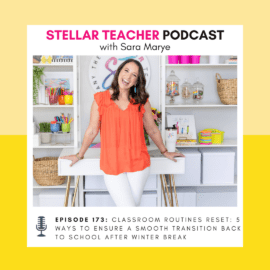
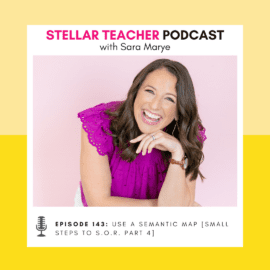

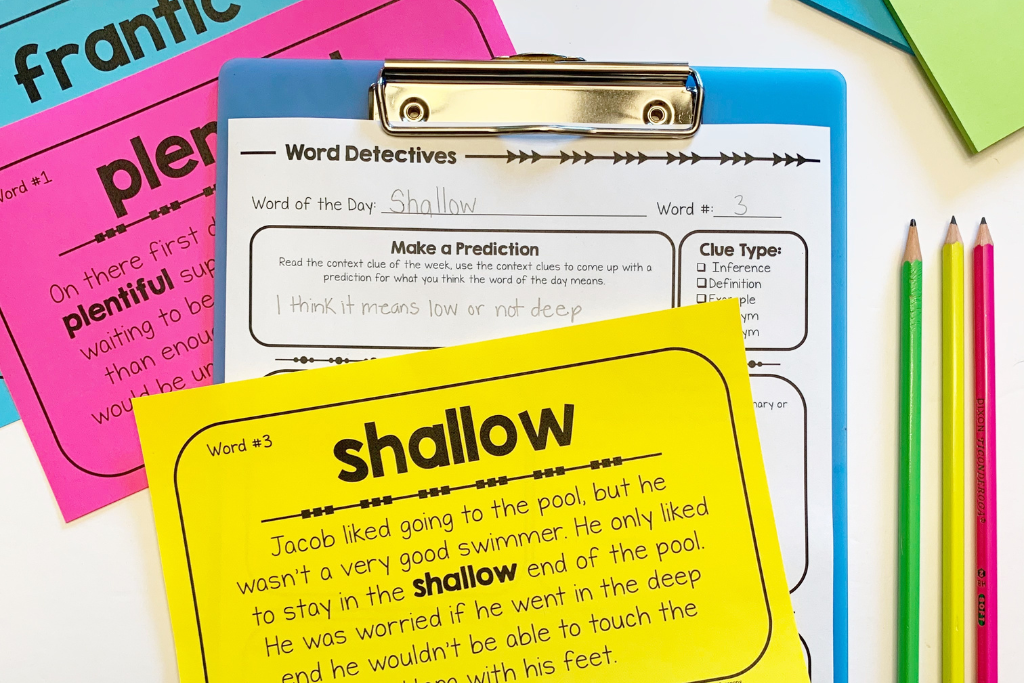
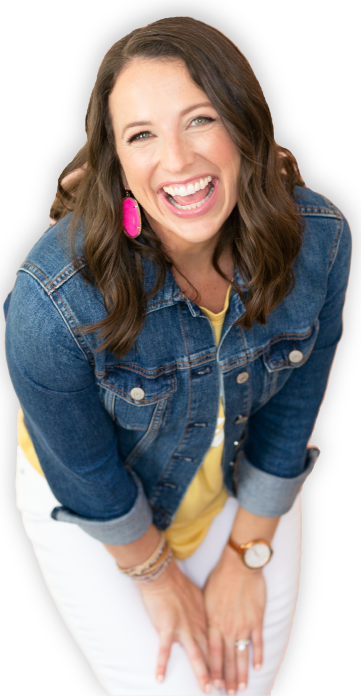
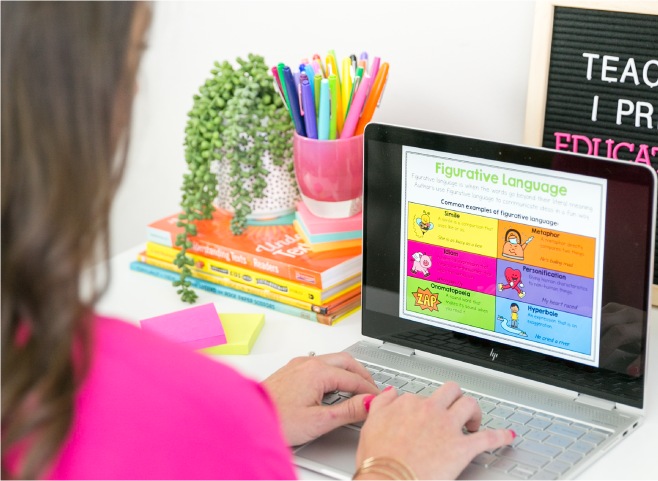
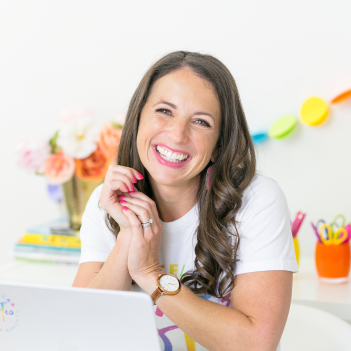
Leave a Comment
You must be logged in to post a comment.